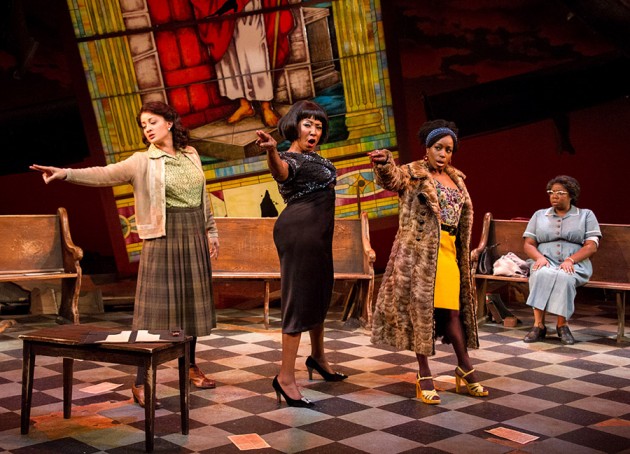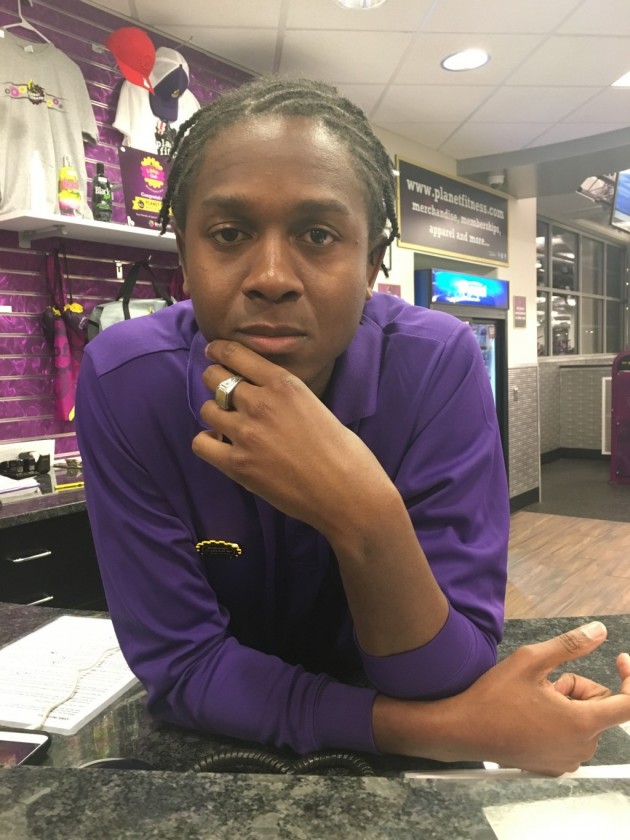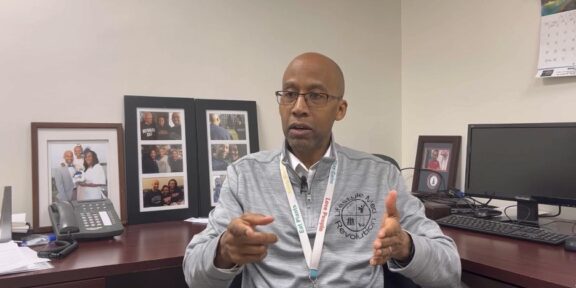Valenta Smith was 50 years old and uninsured when she found out she had colon cancer.
Leading what she considered a healthy lifestyle of regular exercise and a nutritious diet, Smith dismissed the rectal pain she had developed as hemorrhoids. She decided to get screened for the disease only at the insistence of her sister, who had been diagnosed with breast cancer years earlier. Her sister recommended Smith to the Screen for Life Program at Howard University Hospital.
If it weren’t for the program, Smith said, “I could be dead right now.”
Five percent of the U.S. population will get colon cancer
Screen for Life offers free colonoscopies to uninsured and underinsured D.C. residents between the ages of 50 and 64. The Georgetown Lombardi Comprehensive Cancer Center is also participating in the program. Howard and Georgetown started the program in June with a grant from the nonprofit D.C. Cancer Consortium and the District of Columbia Health Department.
Throughout the course of the screenings, Howard and Georgetown physicians have found that one of every three patients, or about 30 percent, has tested positive for precancerous adenoma polyps. This exceeds the national average of 25 percent of patients, at age 50, who have precancerous polyps, according to the American Cancer Society.
Polyps are abnormal growths in the intestinal tract that are often benign, but can develop into colon cancer, one of the most aggressive types of cancer. The ACS estimates that 5 percent of the U.S. population will get colon cancer, the third leading cause of deaths from cancer.
The findings highlight the need to screen patients for the disease, especially those without sufficient insurance, said Dr. Duane Smoot, chief of the Gastroenterology Division of the Howard University Cancer Center and head of Screen for Life at the center.
“If you’re uninsured it is unlikely you will get this screening because it is very costly,” Smoot said.
On average the procedure can cost $1,800 to $2,000.
Colonoscopies are the most accurate way to examine the entire colon
“[Screen for Life] is not only saving money, it’s saving lives,” said Dr. Oscar Streeter, chair of Radiation Oncology at the Howard University Hospital.
“I’ve had a family member who had colorectal cancer who could afford [treatment], who didn’t get the screening and she died,” Streeter said. “She didn’t get to know her granddaughter.”
According to Dr. Michael Pishvaian, who heads Georgetown’s program, only half of the population that should be getting screening colonoscopies is actually undergoing the procedure. Colonoscopies are the most accurate way to examine the entire colon, reports the ACS.
As gastrointestinal cancer specialist at Georgetown University Hospital, Pishvaian works largely with patients who have already been diagnosed with colon cancer.
“It’s always hard to go back and say to myself, ‘What if that patient had gotten their colonoscopy seven years earlier? They wouldn’t be in my office with an incurable disease now,'” Pishvaian said.
African Americans have the highest mortality rates of colon cancer
African Americans are diagnosed with colorectal cancer and die at higher rates than any other racial or ethnic group in the United States, the ACS reports. According to the cancer society’s most recent data, black men and women have incidences of colorectal cancer 20 percent higher and mortality rates 45 percent higher than whites.
Several factors have been proposed for the higher rates, including the level of understanding and education on the disease and taking initiative to treat it.
In a trial conducted with the National Institutes of Health, Dr. Adeyinka Laiyemo, attending physician in the Gastroenterology Division of the Howard Cancer Center, found that while the number of polyps among black and white patients was about the same in screenings, blacks were less likely to follow up their screenings with a colonoscopy to remove the polyps.
Sharing family histories of colon cancer alerts people to the risk of the disease
Another factor Laiyemo has identified among black patients is a reluctance to share their family histories with doctors and relatives.
“People don’t like to tell somebody else that they have cancer, or that they have cancer in the family,” Laiyemo said, “but this is a disservice to the population because then people are not aware of their risk and the fact that they need to be checked earlier.”
Had she known about her family’s history, Smith says she would have gotten checked years before she turned 50.
“I didn’t know that my family members had the polyps and they had them removed,” Smith said. “They just didn’t talk about it.”
A colonoscopy is a relatively painless, 30-minute procedure in which a scope is inserted through the rectum and large intestine to find any abnormalities while the patient is sedated. The day Smith went in for her screening, doctors identified polyps and then tumors.
“A week later I was informed that I had cancer, and then I started the treatment,” Smith said. She has now completed her chemotherapy and radiation treatments, and has encouraged all her family and friends to get the colonoscopy screening.
“At least now they can’t say they don’t know,” Smith said. “We all know what we’ve had and what someone else in my family may have had. I’ve told everybody everybody’s business.”
Joyce Byrd had her first colonoscopy at age 48 after her mother was diagnosed with colon cancer. In January, she had her second colonoscopy at the age of 53 with the Screen for Life program at Georgetown. This time they found a precancerous polyp.
“When I had my first colonoscopy, I had no problem,” Byrd said. “I was insured. I was able to do this – no big deal.”
But three years ago, she and her husband lost their jobs, leaving her uninsured when she took her second screening. Afterwards, her husband also made the decision to get screened. The doctors found a polyp, but it was benign.
“The fact is that we have children and I have grandchildren,” Byrd said. “We want to be able to be here.”
Getting screening colonoscopies can save lives
As the Screen for Life program nears its end on May 31, doctors continue to reach out to the community to encourage residents to get screened, a task they find surprisingly difficult considering they are offering the service for free.
“You would think we should be full in one week, and we should have to go back to [the D.C. Cancer Consortium] and say we need more money. That’s what you expect us to do,” Laiyemo said. “But here we are, many months later we are still looking for people to get screened. So the question is ‘where is everybody?'”
It’s a question that Smith asks herself now that she knows the importance of getting screened.
After learning about the risks of the disease, Smith says, getting screened is the most important step.
“At least it will educate you in the unknown,” she said. “I think that’s what will save your life.”





